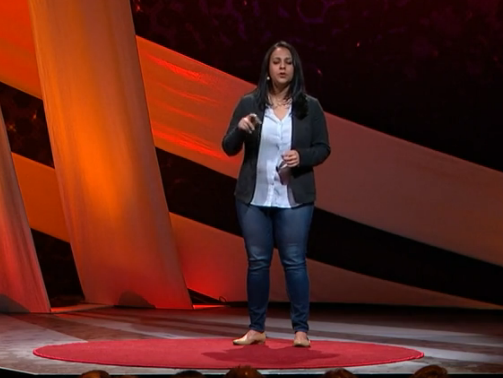We're about to enter a new phase of money.
一种新的货币模式正在逐渐形成。
The future of money is programmable.
未来的货币是可以程序化的,
When we combine software and currency, money becomes more than just a static unit of value,
当我们把软件和货币结合在一起,货币不仅仅是一种静态的价值单位,
and we don't have to rely on institutions for security.
我们也不需要再依赖于各大机构的安全系统。
In a programmable world, we remove humans and institutions from the loop.
在可编程的世界里,人类和机构不再参与到金钱交易的圈子里。
And when this happens, we won't even feel like we're transacting anymore.
当这样的情况发生后,我们甚至感受不到我们正在进行交易。

Money will be directed by software, and it will just safely and securely flow.
资金将会在软件的运行指导下,安全放心地进行交易。
Cryptocurrencies are the first step of this evolution.
加密货币将是货币革新的第一步。
Cryptocurrencies are digital money that isn't run by any government or bank.
加密货币是一种不需要政府机构或者银行参与的数字货币。
It's money designed to work in a world without intermediaries.
是一种不需要媒介也能实现其功能的货币。
Bitcoin is the most ubiquitous cryptocurrency, but there are hundreds of them.
比特币便是一种如今最广泛应用的加密货币,而且它有几百种存在形式。
There's Ethereum, Litecoin, Stellar, Dogecoin, and those are just a few of the more popular ones.
比如其中一些比较流行的币种--以太币,莱特币,恒星币,多吉币。
And these things are real money. The sushi restaurant down my street takes Bitcoin.
它们也都是真实的货币。我住的那条街上的寿司店也可以用比特币结账。
I have an app on my phone that I can use to buy sashimi. But it's not just for small transactions.
我可以用我手机上的一个应用程序给生鱼片付款。但比特币不仅仅应用于小额付款。
In March, there was a transaction that moved around 100,000 bitcoins. That's the equivalent of 40 million US dollars.
今年三月份,有一笔交易高达10万比特币。这相当于4千万美元。



